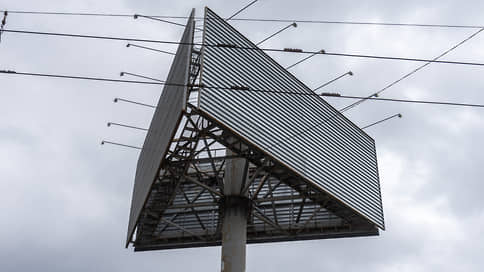Advertising curtails the campaign – Newspaper Kommersant No. 178 (7379) of 09/27/2022
[ad_1]

About 22% of advertisers did not plan to conduct advertising campaigns this and next year in August, the Association of Communication Agencies of Russia (ACAR) and NMi Group found out. Those who continued to advertise allocated more available funds to internet and radio, and less to TV. The mobilization has not yet led to a massive exodus of advertisers, market participants say, writing off the delay in response to a “shock state.”
“Kommersant” got acquainted with the results of a survey of the Association of Communication Agencies of Russia (ACAR) and the Russian advertising group NMi Group, in which more than 100 Russian advertisers from Moscow, St. Petersburg and cities with a population of more than 100 thousand people took part in August. It follows from it that 22% of advertisers from different industries did not plan campaigns in the second half of 2022 and 2023 even then (in 2021 and the first half of the year – 17%).
At the same time, the study notes that after a pause in March-April, the prospect of increasing market share against the backdrop of the withdrawal of many foreign companies from the Russian Federation provoked the expansion of campaigns of Russian advertisers. Thus, 40% of respondents wanted to increase their advertising budget in the second half of 2022 and 2023 (35% of them planned to increase it to 20%, and 25% — to 40–60%).
Advertisers were willing to spend more on the Internet. In 2021 and H1 2022, 67% of companies said they spend their budgets on online media ads and 57% on non-media ads. In the second half of the year and in 2023, the number of respondents who were going to spend budgets for these purposes increased to 73% and 60%, respectively. The desire to spend on outdoor advertising remained almost the same (45-46%). Demand for advertising on radio increased from 29% to 38%, while demand for on-air television fell from 38% to 35%.
The National Advertising Alliance (NRA) refutes the decline in demand for TV advertising. According to the results of nine months, they observed “a significant increase in the budgets of the top 10 largest advertisers.” Also, over the past six months, about 600 new clients have appeared in the NRA portfolio: “It is especially worth noting the activity of small and medium-sized businesses in the regions.” Among the categories contributing to market growth were e-commerce, financial services and telecom segments on federal TV, and real estate, pharmaceuticals, telecom and food products on regional TV.
The main reduction in advertising investment until September generally took place among foreign companies, says Nikita Pribylovsky, executive director of SA Media RA. Russian business, he said, stopped placements mainly in cases of a serious decrease in turnover associated with dependence on imported components or parts of products.
The lack of access to several large sites in 2022 would have a negative impact on advertising volumes in any case, experts say. Earlier, OMD OM Group estimated that advertisers’ investments in online promotion in the first half of 2022 decreased by 34%, to RUB 91 billion, including due to the blocking of Instagram and Facebook, as well as the rejection of advertising monetization by Google and TikTok (see Kommersant dated July 19). In general, the NMi Group expected a general decline in advertising sales by 40% for the year.
The announcement in the country since September 21 of partial mobilization has not yet affected existing advertising contracts, says a Kommersant source in the industry: “The situation is as non-standard as possible, and although the market usually reacts instantly to events, now, unlike the start of a military operation, this did not happen “. According to him, so far no one has withdrawn budgets or reported on the revision of plans, “possibly due to shock and uncertainty.” There is no information about large frosts, another interlocutor of Kommersant confirms, everyone is carefully watching the situation: “So far, the effect is not fully understood. I think there will be some action next week.”
[ad_2]
Source link





